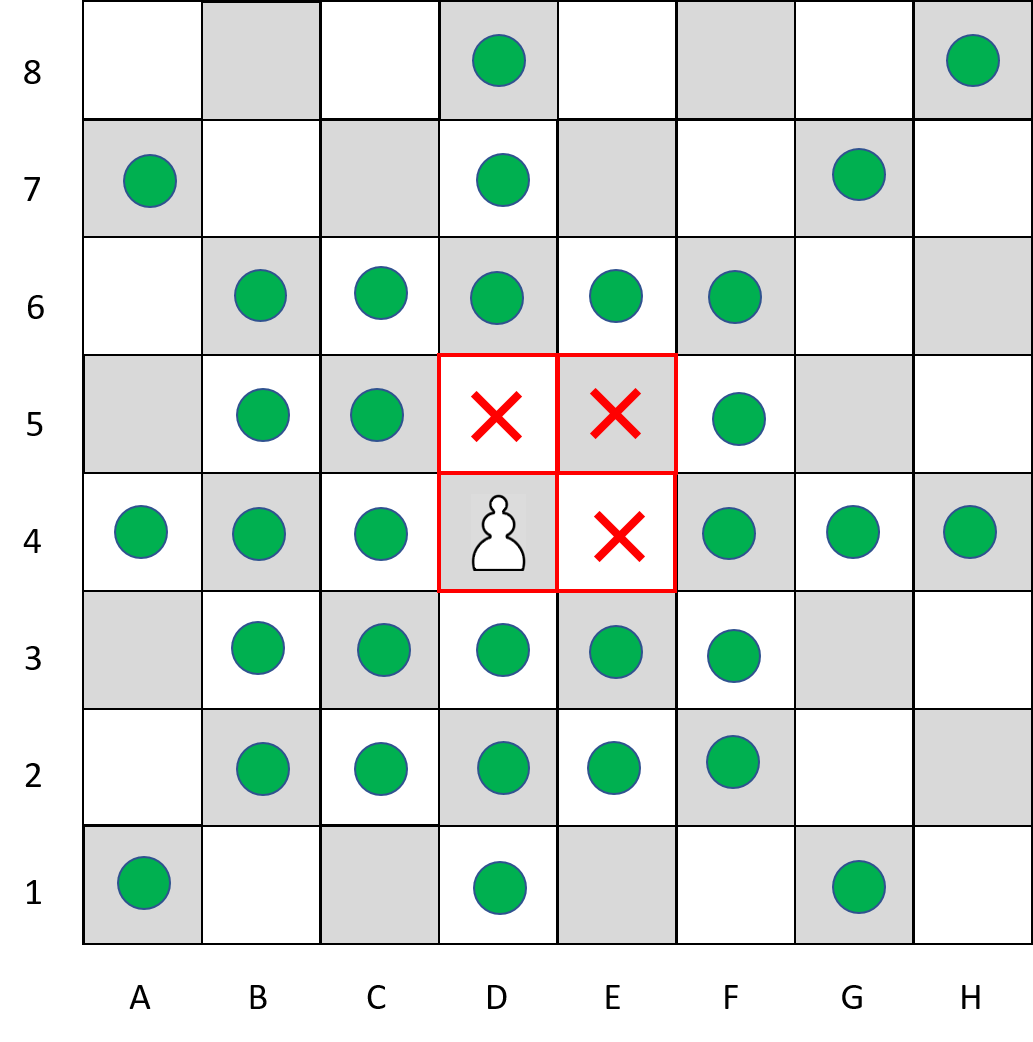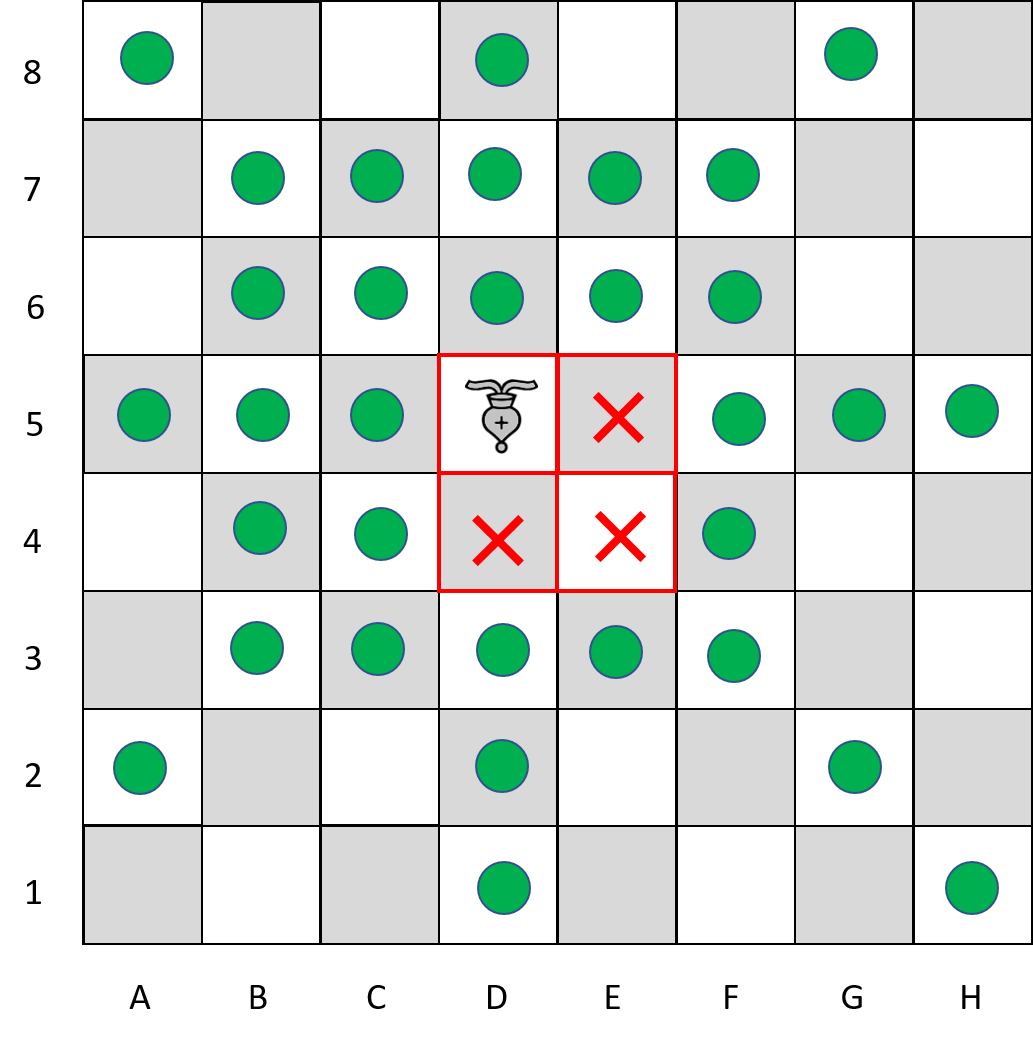Bull's eye
The game is played on a classic chess board with 64 squares. The set of pieces corresponds to that of classical chess without exception. In principle, the Fide rules apply - exceptions are described below.
The special feature of the game is the so-called bull's eye. It is located in the center of the board and consists of the squares D4, D5, E4 and E5.
The pieces on the bull's eye squares have a wide range of moves, which correspond to those of the queen and the knight in combination.
Pieces in the bull's eye are handled equally without exception, i.e. the ranges/moves of pawns, rooks, knights, bishops, queens and kings are identical.
Setup
The starting setup

Pieces
The game is played on a classic chessboard with 64 squares and the classic set of pieces.
Rules
With the exception of the following rules, the rules of classical chess (Fide rules) apply.
- The central element of the game is the so-called bull's eye. It consists of the squares D4, D5, E4 and E5.
- Pieces in the bull's eye are upgraded; they receive the queen/knight move options in combination (see examples below).
- Pieces in the bull's eye are handled equally; all pieces get the same move options ( queen/knight combo).
- There is no limit to how long a piece can remain in the bull's eye.
- It is not possible to move a piece from one square in the bull's eye to another square in the bull's eye (see examples).
- The above rule does not allow opposing pieces in the bull's eye to capture each other.
- Pieces in the bull's eye can be captured by pieces outside the bull's eye.
- The bull's eye can theoretically/practically be occupied by four pieces.
- If a pawn reaches rank 8 - or rank 1 - via the bull's eye, it is promoted to a piece of choice.
Examples of possible moves:
D4 moves

E5 moves

D5 moves

E4 moves

 This 'user submitted' page is a collaboration between the posting user and the Chess Variant Pages. Registered contributors to the Chess Variant Pages have the ability to post their own works, subject to review and editing by the Chess Variant Pages Editorial Staff.
This 'user submitted' page is a collaboration between the posting user and the Chess Variant Pages. Registered contributors to the Chess Variant Pages have the ability to post their own works, subject to review and editing by the Chess Variant Pages Editorial Staff.
By Gerd P. Degens.
Last revised by Gerd Degens.
Web page created: 2023-04-12. Web page last updated: 2023-04-12
